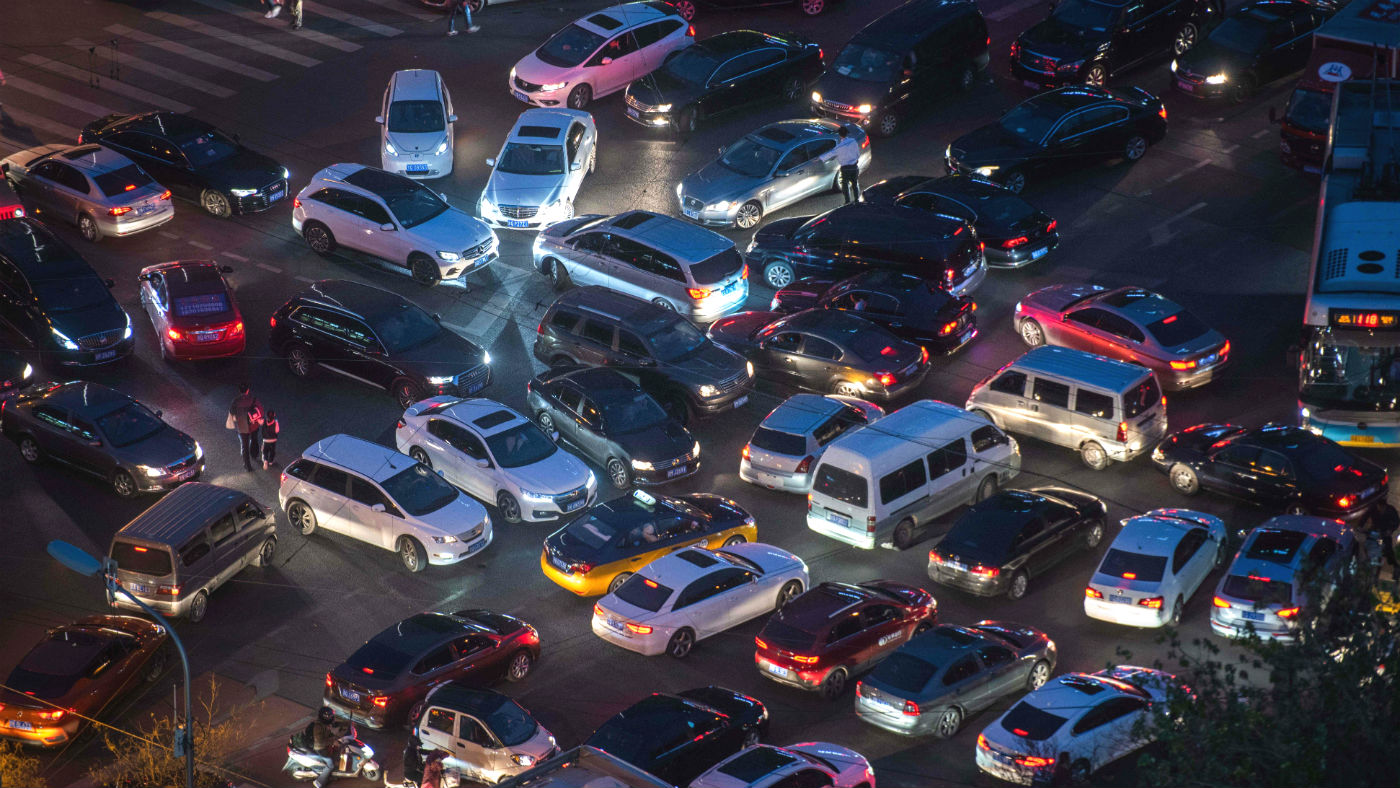How Alibaba’s City Brain is solving traffic congestion
Artificial Intelligence might lead to smarter cities, but could also be used for surveillance

A free daily email with the biggest news stories of the day – and the best features from TheWeek.com
You are now subscribed
Your newsletter sign-up was successful
A new artificial intelligence system that has cut congestion in China and is set to be rolled out to other cities around the world could also be used for surveillance, privacy campaigners have warned.
Alibaba’s City Brain uses AI to gather information from intersection cameras and GPS data on the locations of cars and buses. The platform then analyses this information in real time to coordinate road signals around the city with the aim of preventing or easing gridlock.
Alibaba’s home town of Hangzhou was once ranked as China’s fifth most congested city, but it has now dropped to 57th after a two-year trial by the ecommerce giant.
The Week
Escape your echo chamber. Get the facts behind the news, plus analysis from multiple perspectives.

Sign up for The Week's Free Newsletters
From our morning news briefing to a weekly Good News Newsletter, get the best of The Week delivered directly to your inbox.
From our morning news briefing to a weekly Good News Newsletter, get the best of The Week delivered directly to your inbox.
The company says City Brain has shortened commutes, enabled fire engines and ambulances to halve their response times to emergencies, and helped track illegal parking in real time.
Last year the scheme was extended to other urban areas of China and to Kuala Lumpur, but “experts say this is just the start”, says CNN.
Tech HQ reports that Volkswagen and Siemens have teamed up to test a smart light system in VW’s German hometown of Wolfsburg.
The site says “a section of road with 10 traffic signal systems that transmit information about its light phases is expected to tell a driver, or a self-driving car of the future, when to expect a wave of green lights”.
A free daily email with the biggest news stories of the day – and the best features from TheWeek.com
A recent report from the McKinsey Global Institute predicts that by 2025, cities using such systems could cut commutes by an average of 15% to 20%.
Yet “with Alibaba’s city data grab come concerns about privacy and surveillance”, says Wired.
The aim, says the magazine, is “to create a cloud-based system where information about a city, and as a result everyone in it, is stored and used to control the city”.
Gemma Galdon Clavell, a social scientist working on the ethics of technology, said: “The implications are huge. There will be no oversight nor control not only of stated uses but also future uses.”
It follows a recent survey, by tech firm Tencent and Chinese state broadcaster CCTV, which found nearly 80% of respondents said they worried about the impact of AI on their privacy.
Galdon Clavell says the usefulness for citizens, in the way of improved services is not clear, but it is clear it will be valuable for profiling and commercial activities.
“What is sold as a public or safety initiative ends up using public infrastructure and the public to mine data for private uses,” she says.
-
 The Olympic timekeepers keeping the Games on track
The Olympic timekeepers keeping the Games on trackUnder the Radar Swiss watchmaking giant Omega has been at the finish line of every Olympic Games for nearly 100 years
-
 Will increasing tensions with Iran boil over into war?
Will increasing tensions with Iran boil over into war?Today’s Big Question President Donald Trump has recently been threatening the country
-
 Corruption: The spy sheikh and the president
Corruption: The spy sheikh and the presidentFeature Trump is at the center of another scandal
-
 Claude Code: Anthropic’s wildly popular AI coding app
Claude Code: Anthropic’s wildly popular AI coding appThe Explainer Engineers and noncoders alike are helping the app go viral
-
 Will regulators put a stop to Grok’s deepfake porn images of real people?
Will regulators put a stop to Grok’s deepfake porn images of real people?Today’s Big Question Users command AI chatbot to undress pictures of women and children
-
 Most data centers are being built in the wrong climate
Most data centers are being built in the wrong climateThe explainer Data centers require substantial water and energy. But certain locations are more strained than others, mainly due to rising temperatures.
-
 The dark side of how kids are using AI
The dark side of how kids are using AIUnder the Radar Chatbots have become places where children ‘talk about violence, explore romantic or sexual roleplay, and seek advice when no adult is watching’
-
 Why 2025 was a pivotal year for AI
Why 2025 was a pivotal year for AITalking Point The ‘hype’ and ‘hopes’ around artificial intelligence are ‘like nothing the world has seen before’
-
 AI griefbots create a computerized afterlife
AI griefbots create a computerized afterlifeUnder the Radar Some say the machines help people mourn; others are skeptical
-
 The robot revolution
The robot revolutionFeature Advances in tech and AI are producing android machine workers. What will that mean for humans?
-
 Separating the real from the fake: tips for spotting AI slop
Separating the real from the fake: tips for spotting AI slopThe Week Recommends Advanced AI may have made slop videos harder to spot, but experts say it’s still possible to detect them